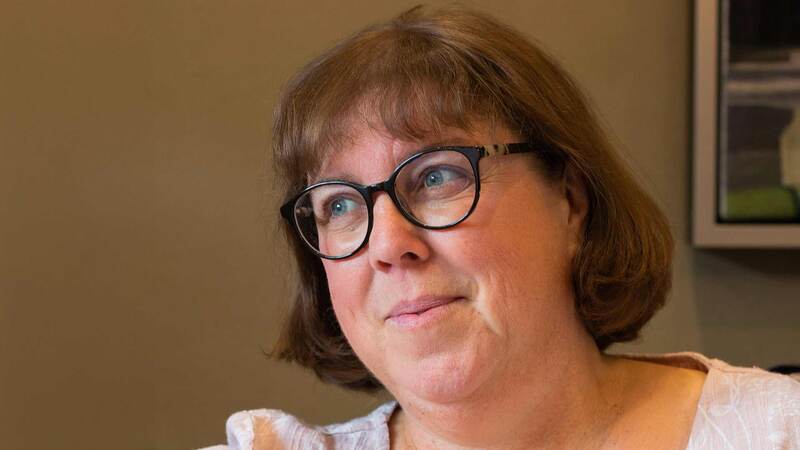You are viewing your 1 free article this month. Login to read more articles.
Recruitment bias is real
When it comes to hiring, publishing’s diversity policies aren’t working.
The publishing industry has rallied around calls for equality, diversity and inclusivity. Policies abound, particularly when it comes to hiring. Recruitment teams compete to undo biases with strategies like blinded applications and first-interview schemes.
Unfortunately, my own recent endeavours to job hunt within publishing – as a qualified brown woman with two university degrees and two years of work experience – suggest that there’s a long way to go in terms of applying these policies with real sensitivity and understanding. Simply put, I’ve repeatedly been patronised and tokenised.
While I completed my Master’s degree, I sought part-time work at a bookshop in Oxford. When I interviewed to be a bookseller, I talked about a broad range of books across genres and cultural contexts. However, as the interview came to a close, the recruitment manager, a white woman, pointed to a copy of Shehan Karuntilaka’s The Seven Moons of Maali Almeida, which had won the Booker Prize that year, and asked me if I had read it. I nodded; she laughed and winked at her companion, also white, and said, “We haven’t, so we’ll be depending on you to sell it then.”
In short, I could be qualified to write critical research papers across the breadth of world literature, but could only be depended upon to recommend South Asian fiction at the bookstore.
The few months I worked there clearly indicated that this wasn’t just a subconscious belief among staff, but also among some customers. Many approached me looking for recommendations of "Oriental poetry" and "books on jihad". I also remember all too starkly the feeling that, in a shop that otherwise had no point-of-contact staff – were it not for Seven Moons winning the Booker that year, flooding the shop with copies that needed to be sold – I might not have been hired at all.
Upon graduating, when I started looking for entry-level positions in both trade and academic publishing, I found it harder than ever to figure out why I was unable to qualify for interviews in jobs where I fulfilled all the job criteria. Several dozen rejections later, I applied for career counselling through my university, and was told by a counsellor that my résumé had too many identity signifiers. Although part of me was grateful to finally understand why I was unable to break into the industry, I was also appalled by the notion that the same companies that projected commitments to diverse workforces through their mission statements, and who peppered their websites with pictures of staff of colour, were potentially turning away applications based on racial and gendered signifiers in résumés.
The counsellor scrutinised my resume and made changes that stripped my job experiences of geographic context, standardised my credentials to UK-specific terms, and shortened my name to three easily pronounceable letters: Sam. Within days of submitting this new, white-washed résumé, I had an interview at an academic publishing house. Over the course of the next month, I had interviewed for four entry level positions, where before I hadn’t managed to get through to one.
My worst experience was with a University Press, where, upon entering the building, I was asked only for my name, and then escorted into an interview for a cleaner’s position
Each interview I walked into gave me insight into the constitution of the workforce of publishing companies. Academic interview panels tended to comprise all-white, sometimes all-male staff, where I felt dismissed almost as soon as I walked into the room. My worst experience was with a university press, where, upon entering the building, I was asked only for my name, and then escorted into an interview for a cleaner’s position. When I confirmed that I had, in fact, applied for the position of senior editorial assistant, they escorted me to another interview room in a panic, and tried to cover up the situation saying they’d confused my name with that of another candidate. I’m hard pressed to believe they were interviewing two Samyukthas on the same day; make of that what you will.
Trade publishing fared slightly better – in a few publishing houses, staff seemed to demonstrate a more reasonable racial and gender distribution, and I felt the difference even at the interview stage. The panels I interviewed with were more open to understanding the precarious identities I inhabited as a job seeker in an extremely competitive industry. My most successful interview took place with two women of colour, one British South Asian, the other Ghanaian, where I felt completely at ease to present my qualifications without having to prove that I deserved to belong there at all.
While many companies within the publishing sphere swear by policies to increase diversity, these policies need to be better actioned. Hiring practices still retain bias, and may end up repelling talented, creative and innovative people from non-white backgrounds.
Self-rejecting and self-censorship among women and marginalised racial communities while job hunting is already statistically proven; non-application of diversity policies and lack of sensitivity training on the ground can only further harm their ability to contribute to an industry that thrives on globalisation. The gap between policy-making and application urgently needs to be bridged across the industry, even as it continues to expand, before people who are passionate about books and publishing begin to lose heart in its ability to support them in return.



















